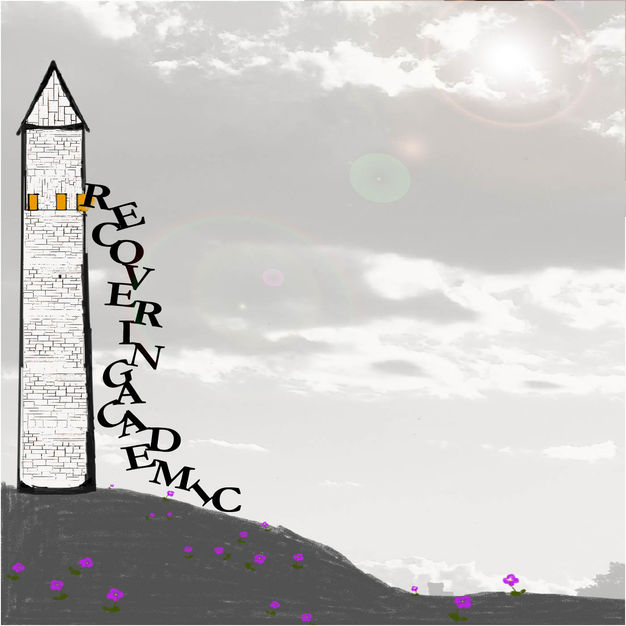
Recovering Academic
Recovering Academic
Transitioning out of academia can leave you feeling lost and alone. The Recovering Academic podcast seeks to fill this gap. Join us as we navigate various stages of leaving academia and the issues that arise.
- Send Recovering Academic to the NPA Meeting!
Happy 2020, Recovering academic audience (& hello to those new to us).
We hope you had a restful break and 2020 is off to an amazing start.
Recovering Academic has been invited to the annual NPA Meeting in March, and we’re raising money to travel there.
Instead of just asking for donations (you can, if you like, however!), we’re selling awesome Recovering Academic stickers for $5.00 each via Paypal link below and you can buy a Recovering Academic T-shirt at our Bonfire store for $25.00.
-
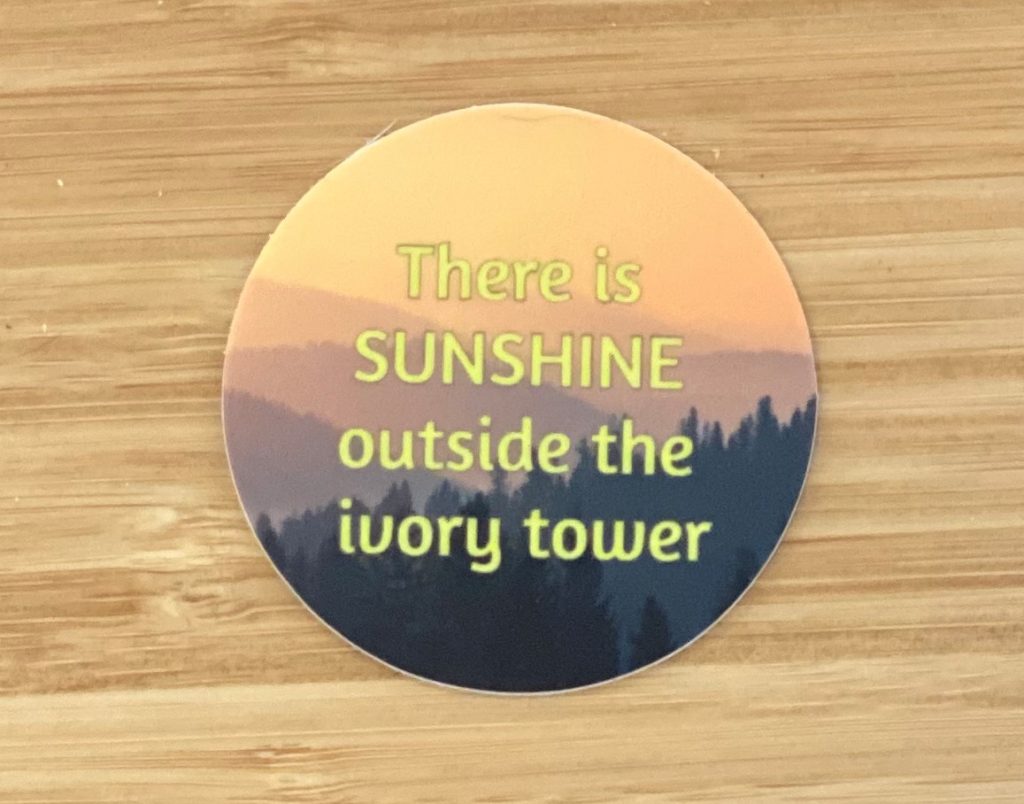
-
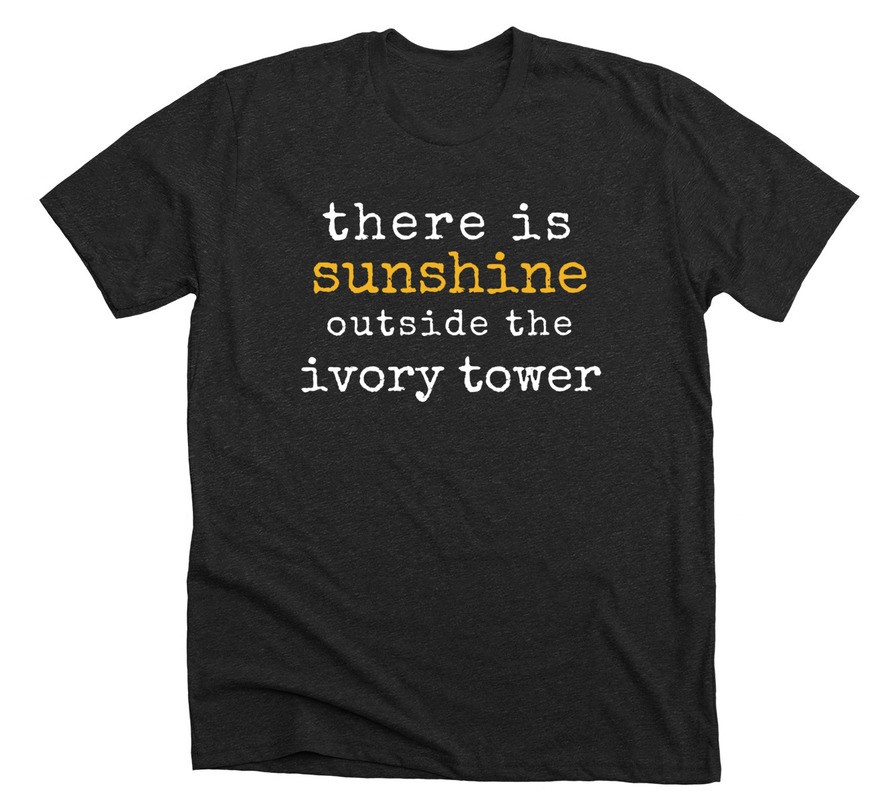 Get your Tshirt here!
Get your Tshirt here!

Get Your Shirt HereWe are also actively seeking sponsors, so if you’re interested in sponsoring us for mentioning your company, get in touch with us here!
We’re excited about 2020 and we’re excited for our session at the NPA conference and providing insights into the complex world of career transitions and the world of possibilities that exist for PhDs!
29 January 2020, 12:40 pm -
- Season 4: ep 02: Dr. Emily Roberts
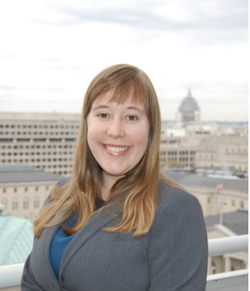 Dr. Emily Roberts. Photo source: pfforphds.com.
Dr. Emily Roberts. Photo source: pfforphds.com.
We spoke with Emily Roberts, PhD about their business Personal Finance for PhDs. Emily’s career after academia is advising PhDs about finance.
One of the key points she made was to how having a solid amount of savings enabled her to make the decision to start her own solopreneur business, making the transition easier. Financial security makes transition less stressful.
Dr. Roberts also encourages PhDs with a side hustle to do one that builds and demonstrates skills they are interested in and that might turn into a new career path.
Listen to the episode to hear more wisdom from Dr. Roberts about PhD’s taxes, managing money, and her current career running her own businesses.
Show Notes
Get a financial life by Beth Kobliner
18 November 2019, 5:38 am - Season 4, Episode 1: Eva Amsen
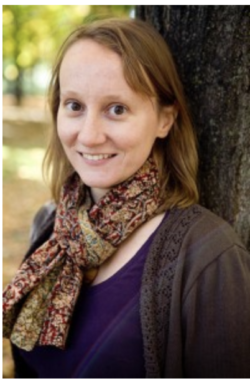 Eva Amsen, PhD. Photo from Easternblot.net. Photographer: Rannie Turingan
Eva Amsen, PhD. Photo from Easternblot.net. Photographer: Rannie Turingan
For our series four opener, we talk with Freelance writer, editor and science communicator Eva Amsen, PhD who joined us in the middle of her night from London. Eva got her PhD at the University of Toronto where she started a blog, EasternBlot.net. During her PhD, Eva had already decided that she didn’t want to pursue a faculty career.
Through her blogging experience, she freelanced through the economic crash of 2008 just after her PhD. Giving herself a one year deadline post PhD to find a job, she landed a job at the journal Development to start their still-existing (and excellent) blog, The Node.
While she has had full time jobs in the last decade, Eva is now a full time freelancer again and we discuss the nature of freelancing and finding work, the job that is communicating science, and her project Share Your Sci (hint: have a specific audience in mind).
Eva’s Bio
Eva Amsen is a writer and science communicator, focused on the common ground between science and the arts. She runs a quarterly newsletter highlighting collaborations and overlap between scientists and musicians. Eva has written about science in culture and society for Nautilus, The Scientist, Spacing Magazine and other places — including the science blog she has maintained since her days as a PhD student in Toronto. Eva also runs Share Your Sci and helps researchers communicate their work.
You can follow Eva on Twitter @easternblot.net.
Show Notes
Book Ian mentioned: Hiding in The Bathroom: An Introvert’s Roadmap to Getting out there when you’d Rather Stay Home by Morra Aarons-Mele.
1 November 2019, 4:42 am - Recovering Academic Season 4 Teaser

We’ve discussed our experiences regarding the struggles we faced when leaving academia. So now we want to hear from you!
The recovering academic trio is on summer break, but we want to ask for your help to plan our next season!
Send us questions, suggestions for topics, tell us about your specific transition struggles! Let us know if you’d prefer to remain anonymous or be credited.
You can get in touch via Twitter (@RecoveringAcad, @LadyScientist, @Doctor_PMS, @IHStreet), our Facebook page, or email show at recoveringacademic dot net.
We will be back in your ears this fall!
28 June 2019, 12:46 am - Season 3 Episode 11: Space
 The Hubble Ultra Deep Field. Public Domain.
The Hubble Ultra Deep Field. Public Domain.
Space, the final frontier. These are the voyages of the Recovering Academics. Its mission: to explore different and new industries. To seek out life outside of academia To boldly go where no former academic has gone before!
In this episode, our intrepid trio discusses the importance of giving yourself space to try out new things. The trio will also take our own advice and give ourselves some space. This is the end of season three, but don’t despair! We’ll be back for season 4 in the fall.
Mentioned in this episode:
Show notes for our Space ep (at least things I mentioned):
30 April 2019, 2:22 pm - Season 3 episode 10: Value

In this episode the recovering trio discusses how to ask for more when academia train us not to negotiate/request what your time is actually worth. How do you put a dollar value on your time. Entrepreneur Amanda has so many great things to say, like researching rates charged by others in the industry, charging more for rush requests, and not falling into the trap of feeling like a constant beginner and never ending up charging for what you can do. And last: if someone comes to you with a project that might be worth doing, but would make you grumpy or stressed to do, ask for a rate that would make you not feel stressed out or grumpy and let the client say yes/no to that rate. In other words, make yourself happy. We also discuss the three P’s (Passion, Prestige, and Pay). If a project or job doesn’t offer at least two of those three, turn it down.
We also discuss how hard it is to say no to opportunities sometimes, and how you have to feed your cat. People pleasing may be a common trait amongst academics (at least n=3 for the podcast co-hosts), and one that can lead us to not ask for our value or accept offers that are too low for our actual value.
“If you’ve ever thought about calculating your hourly pay as a postdoc or PhD student, my suggestion is to not do that” – Amanda
“…if a project comes back with a dollar amount, practicing saying “that sounds a little low” – Ian (quoting advice of science writer Kate Gammon Ian encountered at SciComm Camp).
“Working on next month’s pay in the current month…” – Amanda on how she works with a cushion, always working on the next month’s pay in the current month.
20 March 2019, 4:10 am - Season 3 episode 9: Interview with Gary McDowell
In this week of the Recovering Academic podcast we talk with Dr. Gary McDowell and his journey outside academia. Gary is the executive director of The Future of Research, a non-profit organization created for and by early career researchers to make the research enterprise more sustainable for future generations. Their mission is to champion, engage, and empower early career researchers with evidence-based resources to improve the research endeavor.
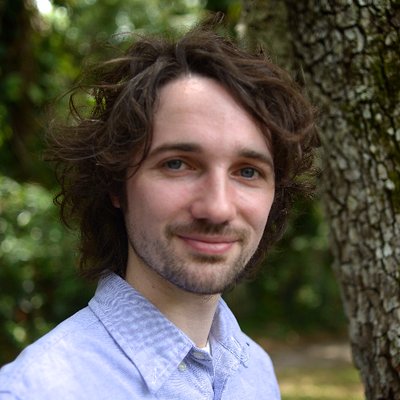
Gary tells us how even though his path out of academia was somewhat ‘easy’ to delineate, it was still very hard to finally take the decision and leave.
“But I don’t know if I’m ready yet.
You come walking into this room
Like you’re walking into my arms.
What would I do without you?”I don’t think people understand how difficult is is (to leave academia). @BiophysicalFrog
He also discussed how almost everybody that leaves academia experiences the same feelings of disappointment and feelings of failure. Also how it seems most of the recovering academics have a self-imposed isolation from academia to have a ‘clean break’. Unlike them, Gary is still directly involved with academia, and most of his daily duties seem a lot academic-like.
I hear this a lot: “Nobody twists your arm and say you have to be a post-doc”. Nobody physically does it, but psychologically, they do. @BiophysicalFrog
You can read more about Gary’s career in the FoR website and contact him on his Twitter account: @BiophysicalFrog
Mentioned in this episode:
- K99 NIH grant: NIH Pathway to Independence Award (Parent K99/R00)
- Love and Anger by Kate Bush: lyrics
- The expanse: TV show
- Athena Swan: ECU and Wikipedia
- Putting mentoring at the heart of academia: conference in Chicago in June 2019
- Athene Donald
11 February 2019, 3:09 am - Season 3 Episode 8: Surprises

On this episode, we talk about what surprised us the most about the transition from academia to our post-academic lives.
What has surprised you the most when leaving academia? Was it the difference in working life? Was it the different feeling about work? Did you have a lot of free time? Was it an easy adjustment? Or difficult? Transitioning can be all of these or none of these. We’ll share our stories.
Mentioned in this podcast:
- Original surprise tweet from @drmarenw https://twitter.com/drmarenw/status/1055191449858383872
28 January 2019, 4:56 pm - Season 3 Episode 7: Cynicism
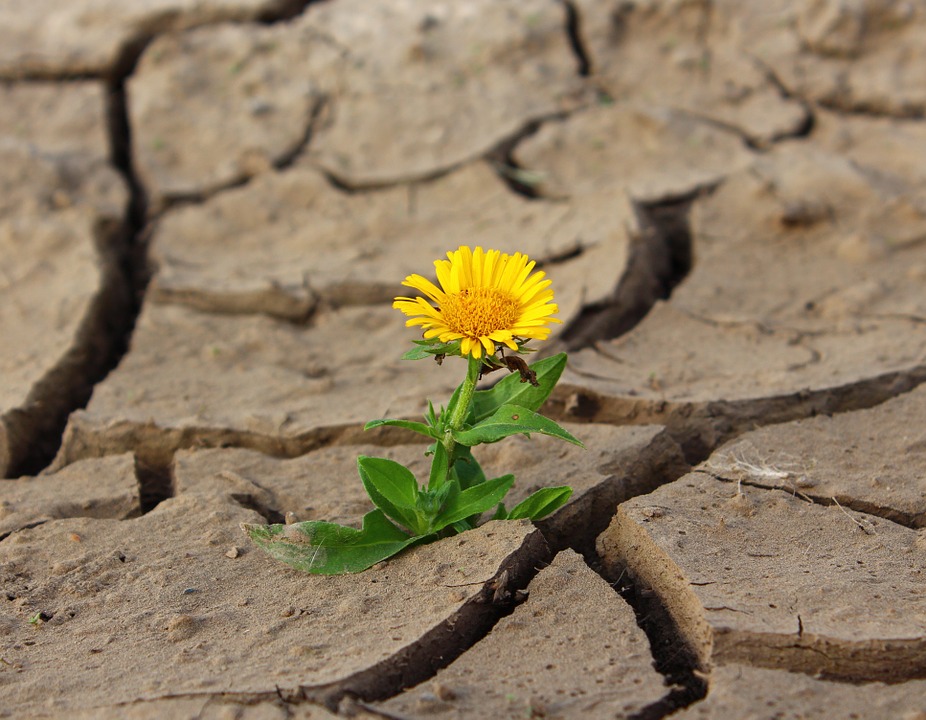 Drought Crack Life Survival Flower Desert
Drought Crack Life Survival Flower Desert
How to avoid cynical feelings of feeling helpless.
“Always wear shorts under your skirt so you can go to the monkey bar” —@ladyscientist
Mentioned in this episode:
- Learned Helplessness: https://en.wikipedia.org/wiki/Learned_helplessness
- Grant rejection tweet: https://twitter.com/jeroenphv/status/1064579050134478848
- Brain pickings assay: https://www.brainpickings.org/2015/02/09/hope-cynicism/
- The Sunk Cost Fallacy: https://youarenotsosmart.com/2011/03/25/the-sunk-cost-fallacy/
- Blog Grumpy Rumblings (of the formerly untenured): https://nicoleandmaggie.wordpress.com/
- TV show Quantum Leap: https://en.wikipedia.org/wiki/Quantum_Leap
- The Worst Songs Of All Time? https://www.npr.org/sections/allsongs/2014/02/06/272457460/the-worst-songs-of-all-time
- Video of us dancing: https://twitter.com/IHStreet/status/1064729957249818625
9 January 2019, 5:24 am - Season 3 Episode 6: Holiday Episode
The Recovering Academic trio takes some time to reflect about the past year and make plans for 2019.
We also discuss how it is hard to find motivation and focus during this time of the year, but we give some tips about how we can trick ourselves to have some work done during this holiday season!
It’s the season of generosity, but there’s actually little time for generosity @IHStreet
As recovering academics, we need to get used to the idea that the metrics used to quantify your “success” might be very different than the ones on academia, and not very well defined.
Chance favors the prepared mind @ladyscientist
In the end we should all aim for balance @Doctor_PMS

Thanks everybody for listening, we hope everyone has a wonderful holiday and an even better 2019!
Mentioned in this podcast:
- Forest app: https://www.forestapp.cc/en/
- Papyrus – SNL: https://www.youtube.com/watch?v=jVhlJNJopOQ
- Season 02 Episode 09: Reflections and Resolutions: https://recoveringacademic.net/season-02-episode-09-reflections-resolutions/
20 December 2018, 3:06 pm - Season 3 Episode 5: Career Path
Have you ever felt ‘decision paralysis’? With so many choices and not sure which way to go? Hesitant to put all your eggs on a single basket? Well, you are not alone!

In this week’s episode we discuss how to define your career path when you leave the ivory tower. Academia has a defined career path, but that may not be the case once you leave it.
There isn’t a unique answer to these questions, but we discuss the importance of taking breaks to analyze and reflect about these things.
Not making a decision is also making a decision – @ladyscientist
6 December 2018, 4:32 pm - More Episodes? Get the App
Your feedback is valuable to us. Should you encounter any bugs, glitches, lack of functionality or other problems, please email us on [email protected] or join Moon.FM Telegram Group where you can talk directly to the dev team who are happy to answer any queries.
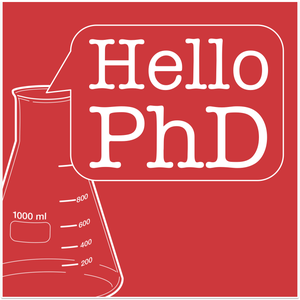 Hello PhD
Hello PhD
 Rock Your Research with Chris Jones
Rock Your Research with Chris Jones
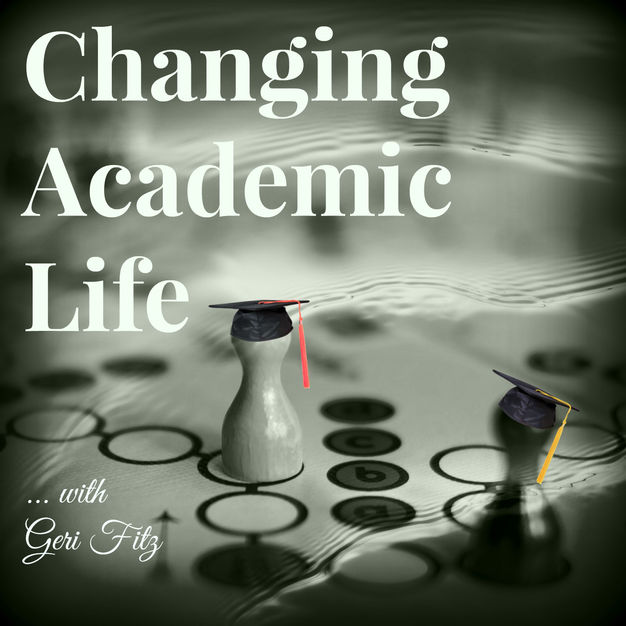 Changing Academic Life
Changing Academic Life
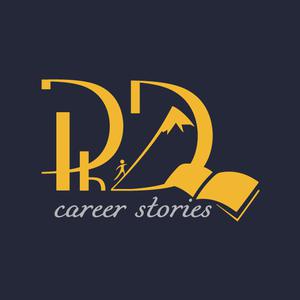 PhD Career Stories
PhD Career Stories
 Cheeky Scientist Radio
Cheeky Scientist Radio
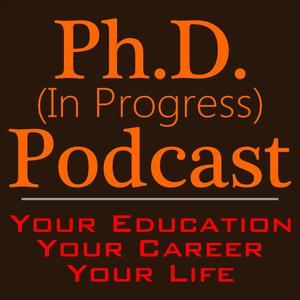 PhD (in Progress) Podcast | Education, Career, Life
PhD (in Progress) Podcast | Education, Career, Life